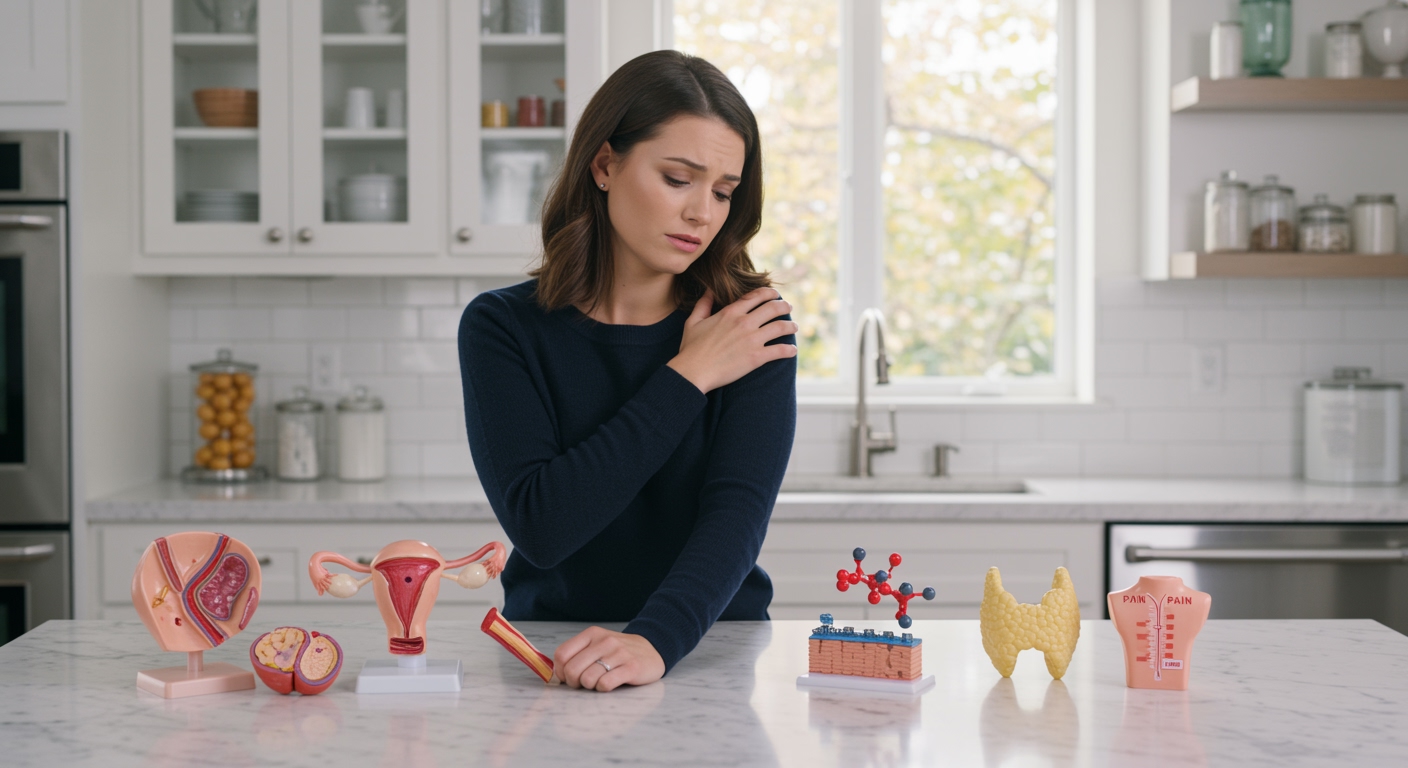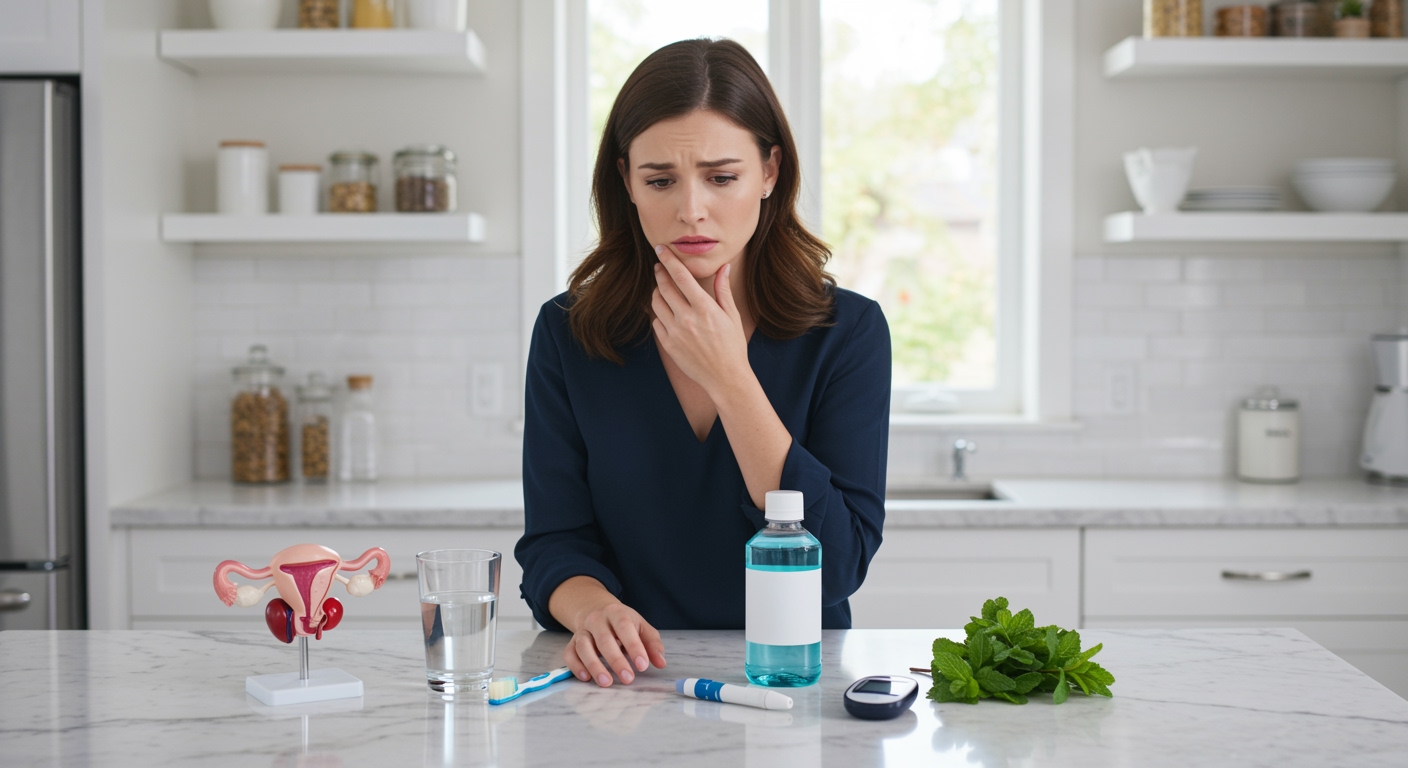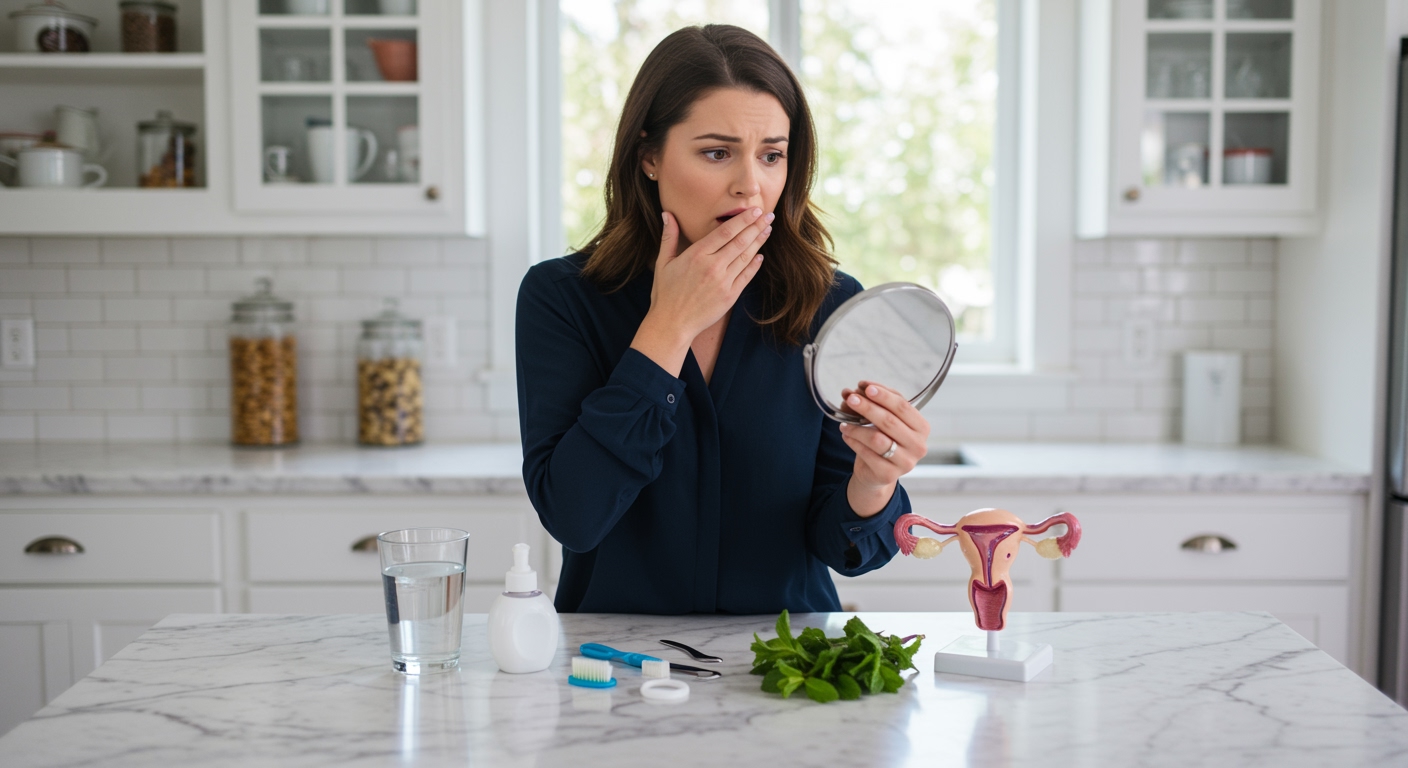✪ Key Takeaway: PCOS can cause persistent muscle aches through hormonal imbalances, inflammation, and insulin resistance mechanisms.
Introduction
Your muscles ache constantly, but doctors keep telling you everything looks normal on your tests.
You might be wondering if your PCOS diagnosis could explain these mysterious persistent muscle pains that seem to have no clear cause.
Hi, I’m Abdur, your nutrition coach and today I’m going to explain how PCOS can indeed cause muscle aches and what you can do about it.
How Does PCOS Create Muscle Pain?
PCOS triggers a cascade of hormonal disruptions that directly impact your muscle health and pain perception.
Elevated androgen levels in PCOS can cause muscle tension and altered pain sensitivity throughout your body.
Your body produces excess inflammatory markers like C-reactive protein and interleukin-6, which create widespread muscle inflammation.
Insulin resistance, present in up to 70% of women with PCOS, impairs your muscles’ ability to use glucose for energy efficiently.
This metabolic dysfunction forces your muscles to work harder, leading to chronic fatigue and persistent aching sensations.
Cortisol dysregulation in PCOS also contributes to muscle breakdown and delayed recovery from normal daily activities.
✪ Fact: Women with PCOS have 40% higher inflammatory markers compared to women without the condition.
What Types Of Muscle Pain Does PCOS Cause?
PCOS-related muscle pain typically manifests as deep, aching sensations rather than sharp or stabbing pains.
You might experience morning stiffness that takes longer than usual to resolve after waking up.
Many women report persistent shoulder and neck tension that seems unrelated to physical activity or stress.
Lower back pain and hip discomfort are common complaints, especially during hormonal fluctuations throughout your cycle.
Your muscles may feel chronically fatigued and take longer to recover from exercise or physical exertion.
Some women experience widespread muscle tenderness similar to fibromyalgia symptoms, though the underlying mechanisms differ.
✪ Note: PCOS muscle pain often worsens during times of hormonal stress or dietary changes.
Why Do Doctors Often Miss This Connection?
Most healthcare providers focus on reproductive symptoms when diagnosing and treating PCOS, overlooking musculoskeletal complaints.
Standard blood tests rarely include comprehensive inflammatory markers that would reveal the connection between PCOS and muscle pain.
Medical training traditionally separates endocrine disorders from musculoskeletal conditions, creating diagnostic blind spots.
Many doctors attribute muscle aches to lifestyle factors like stress or poor sleep without considering underlying hormonal causes.
The research connecting PCOS to muscle pain is relatively new, and many practitioners have not updated their knowledge base accordingly.
Women often receive separate treatments for PCOS and muscle pain, preventing healthcare providers from seeing the interconnected relationship.
✪ Pro Tip: Keep a detailed symptom diary linking your muscle pain patterns to your menstrual cycle for better medical discussions.
Can Improving PCOS Symptoms Reduce Muscle Pain?
Addressing the root causes of PCOS through lifestyle modifications can significantly reduce associated muscle pain and stiffness.
Improving insulin sensitivity through dietary changes helps your muscles function more efficiently and reduces inflammatory stress.
Regular exercise, particularly strength training, can help balance hormones and improve muscle resilience against PCOS-related inflammation.
Anti-inflammatory foods like fatty fish, leafy greens, and berries can help reduce the systemic inflammation driving your muscle pain.
Adequate sleep and stress management directly impact cortisol levels, which play a crucial role in muscle recovery and pain perception.
Some women find that targeted supplementation with omega-3 fatty acids and magnesium helps reduce muscle tension and inflammation.
✪ Fact: Studies show that losing just 5-10% of body weight can reduce PCOS-related inflammation by up to 30%.
What Should You Do If You Suspect PCOS Is Causing Your Muscle Pain?
Start by tracking your pain patterns alongside your menstrual cycle and PCOS symptoms to identify potential connections.
Request comprehensive blood work including inflammatory markers like C-reactive protein and fasting insulin levels from your healthcare provider.
Consider working with a healthcare team that includes both an endocrinologist and a rheumatologist for comprehensive evaluation.
Implement anti-inflammatory dietary changes while you work on getting proper medical evaluation and treatment.
Gentle movement like yoga or swimming can help manage pain while you address the underlying hormonal imbalances.
Do not ignore persistent muscle pain, as early intervention can prevent the development of chronic pain syndromes associated with untreated PCOS.
✪ Pro Tip: Document how your muscle pain responds to PCOS treatments to help your doctor understand the connection.
The Bottom Line
PCOS can absolutely cause persistent muscle aches through complex hormonal and inflammatory pathways that affect your entire musculoskeletal system.
Your pain is real, your concerns are valid, and addressing PCOS holistically can provide the relief you deserve.
I would love to hear about your experiences with PCOS-related muscle pain or any questions you might have about managing these symptoms naturally.
References
At NutritionCrown, we use quality and credible sources to ensure our content is accurate and trustworthy. Below are the sources referenced in writing this article:
- Genesis OBGYN: Managing PCOS Pain
- PMC: PCOS and Inflammation Research
- Cleveland Clinic: Polycystic Ovary Syndrome
- PMC: PCOS Pain Management Study





